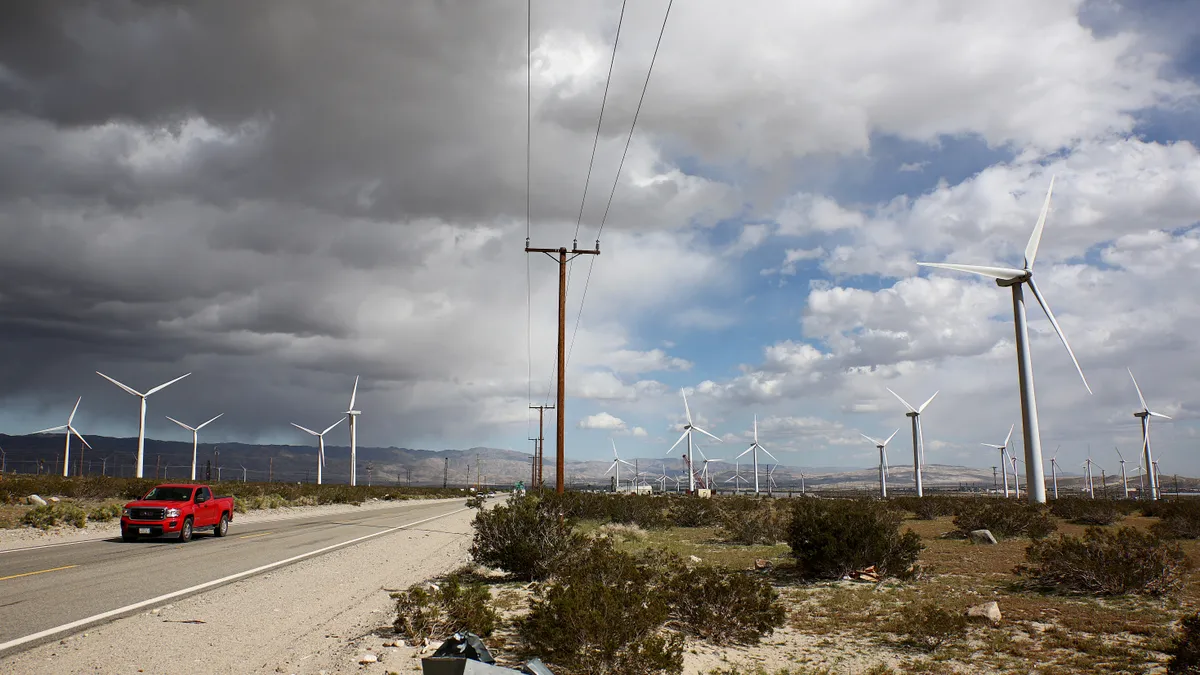Dive Brief:
- Vanguard approved just 2% of environmental and social shareholder proposals at its U.S. portfolio companies during the 2023 proxy year, down from 12% in 2022, according to a company report released Tuesday.
- The nation’s second-largest asset management company approved fewer proposals in 2023 despite voting on 359 environmental and social proposals, up nearly 24% from the year prior.
- Vanguard’s approval rate is similar to BlackRock, the nation’s largest asset management firm, which also reported supporting a smaller percentage of environmental and social proposals in 2023.
Dive Insight:
Vanguard and BlackRock may be just the first juggernauts to report a shrinking percentage of approved environmental and social proposals. A record number of environmental, social and governance-focused shareholder proposals have come up at companies this year, according to Diligent Market Intelligence, though approval rates are falling across the board.
Shareholder activists, Biden administration regulators and Democratic lawmakers have called on companies in recent years for more transparency on climate risk and other points of sustainability, triggering opposition from Republican legislators, business organizations and several state governors.
The Securities and Exchange Commission is poring over more than 14,000 public comment letters as it revises a proposed rule that would require publicly traded companies to disclose data on carbon emissions, the risks from climate change and their strategies for minimizing such risks.
As companies increase their disclosures of environmental and social risks, more proposals coming before shareholders last year were focused on compelling companies to make specific actions like changing company strategy or operations, according to the Vanguard’s U.S. Investment Stewardship brief.
Vanguard said it saw shareholder proposals for environmental issues rise 50% from 2022 — up to 150 from 100 — and voted on 274 social proposals across all U.S. sectors in the latest proxy season.
The finance and energy industries submitted the most environmental proposals, according to the company, with most proposals focused on setting targets for greenhouse gas emissions, climate lobbying and fossil fuel funding. Social issues came up across all industries, with proposals to address racial equity, reproductive rights, pay gaps, worker safety and unionization, Vanguard said.
The firm attributed the smaller percentage of supported ESG policies “largely” to the volume — specifically a rise in proposals the firm deemed “overly prescriptive” — and improvements in how companies disclose their environmental and social risks. The company said its evaluation criteria hasn’t changed.
“Our focus remains on identifying proposals that address financially material risks at a given company, supporting proposals that may fill gaps in the company’s current practices (while not intruding on company strategy and operations) and providing sufficient latitude to the company on implementation,” Vanguard’s report says.
BlackRock, also the target of attacks on ESG by a slate of Republican-led states, noted similar findings in a report last week. After supporting around 20% of environmental and social proposals across its U.S. portfolio in 2022, the number dropped to 7% this year.
The Larry Fink-led firm said 2023 was the first time it saw more environmental and social proposals than governance proposals. Like Vanguard, BlackRock also attributed the smaller percentage of supported environmental and social proposals, in part, to plans that were “overly prescriptive or unduly constraining on management decision-making.”
“The number of single-issue proposals where the request made did not have economic merit also increased,” BlackRock’s report said. “Importantly, many proposals failed to recognize that companies had already substantively met their request.”
Diligent Market Intelligence has said part of the dwindling support is an increase in companies accepting proposals before a vote. But, the rising number of ESG-focused shareholder proposals at companies has also coincided with increased backlash and SEC guidance that has resulted in more proposals going to a vote.
Multiple Republican-led states announced a boycott of BlackRock in 2022 over its ESG practices, including Texas banning financial companies from working with BlackRock and Florida pulling $2 billion in assets from the fund. Fink has said he’s stopped using the term “ESG” due to its politicization.
The SEC updated its guidance for what shareholder proposals companies can exclude under the “ordinary business” exception in 2021. The agency rescinded prior guidance requiring companies to evaluate the significance of a social policy and limited what is considered “micromanagement,” which Vanguard said has led to an increase in proposals “immaterial to the company in question.”
Interested in this type of news story? Industry Dive’s newest daily publication, ESG Dive, is set to launch Oct. 23. Sign-ups begin Sept. 11.












